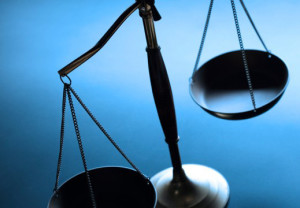5 Things to Know Before Talking to a Criminal Defense Lawyer
Most people have little or no experience with Criminal Law and Criminal Defense Lawyers. Before you go chat with one, however, there are some general guidelines that you should know…
First, Clients must understand that the Attorney/Client Privilege belongs to the Client, not to the Attorney. The Attorney, when consulting with a client, is bound by professional rules to keep the client’s information private and confidential. Sometimes, even the identity of the client is to be kept secret. In those cases where the client wants a family member to sit-in on the consultation, in spite of any promises made by that family member, the privilege does not exist. Good lawyers, however, will maintain all appropriate confidences and will never allow others to know who they are meeting with, or for what reason. Understanding that your potential lawyer needs to know everything, and that he/she will keep your secrets confidential is one of the most important parts of starting a lawyer/client relationship.
Second, Clients must trust ALL relevant information to the Attorney for an intelligent analysis. When a client or potential client hides facts from the attorney, for whatever reason, the attorney cannot asses the whole case intelligently. Telling the lawyer only part of a story can lead to confusion and complications in the future. No matter whether the facts of the case are embarrassing or just plain seem silly, it is always better to tell the lawyer everything. There may be some very important details that the lawyer should know! It is important to keep the Attorney/Client privilege, discussed above, in mind with this also.
Third, The person paying is not necessarily the Client. Lots of times family members will give money to the potential client to help with their cases. Sometimes, these family members will think that, because they gave money to the Lawyer, they are owed some kind of privileges. While everyone deserves to be treated with respect, the Attorney/Client relationship only exists between the attorney and the client, no matter who paid the bill. Good lawyers will make sure everyone involved is well aware of the boundaries before leaving the initial consultation. This may be a little uncomfortable in the first place, but it prevents big potential problems later. Everyone’s role can then be respected well, but only if those roles are well-defined.
Fourth, Some crimes are just not as serious as others, in the eyes of the lawyer. In our world, almost everything is now called a ‘crime’. Lots of folks find themselves engaged in the system without understanding why, or in ways they feel are unfair. On the other hand, lots of attorneys will look at smaller crimes (misdemeanors and petty offenses) and not treat them as seriously as the client feels they should be treated. Experienced attorneys, however, will always gauge how important the matter is to the client, and have a discussion about the real potential penalties based on common local practice. For example, in some Arizona Counties, Possession of Marijuana is pursued much more vigorously than in other Counties. The smart lawyer will take the time to sit with the client and discuss all the possible outcomes, and also may give an estimate of the probable outcomes, in order to effectively counsel the client.
Fifth, A good lawyer will NEVER promise an outcome. Attorneys are prevented from making promises they cannot keep. This is one reason speaking with lawyers can sometimes be frustrating. Remember, however, that it is never the defense attorney who decides outcomes in criminal matters. Rather, the Prosecutor, Jury or Judge are usually the final decision makers. This being the case, if you ever find yourself in front of an attorney who is promising you the world, run! You are probably getting a hard-sale which will be accompanied by disappointment and excuses at the end of the case. Lawyers who promise outcomes may be breaking rules and they are probably just trying to make you feel good so they can get more of your money.
With any luck, you will never have to make an appointment with a Criminal Defense Attorney. But if you do end-up on the other side of a conference room table with one, remember these tips and guidelines. Be informed, and you will have a better experience when looking for the right lawyer to fight for your Constitutional Rights.
